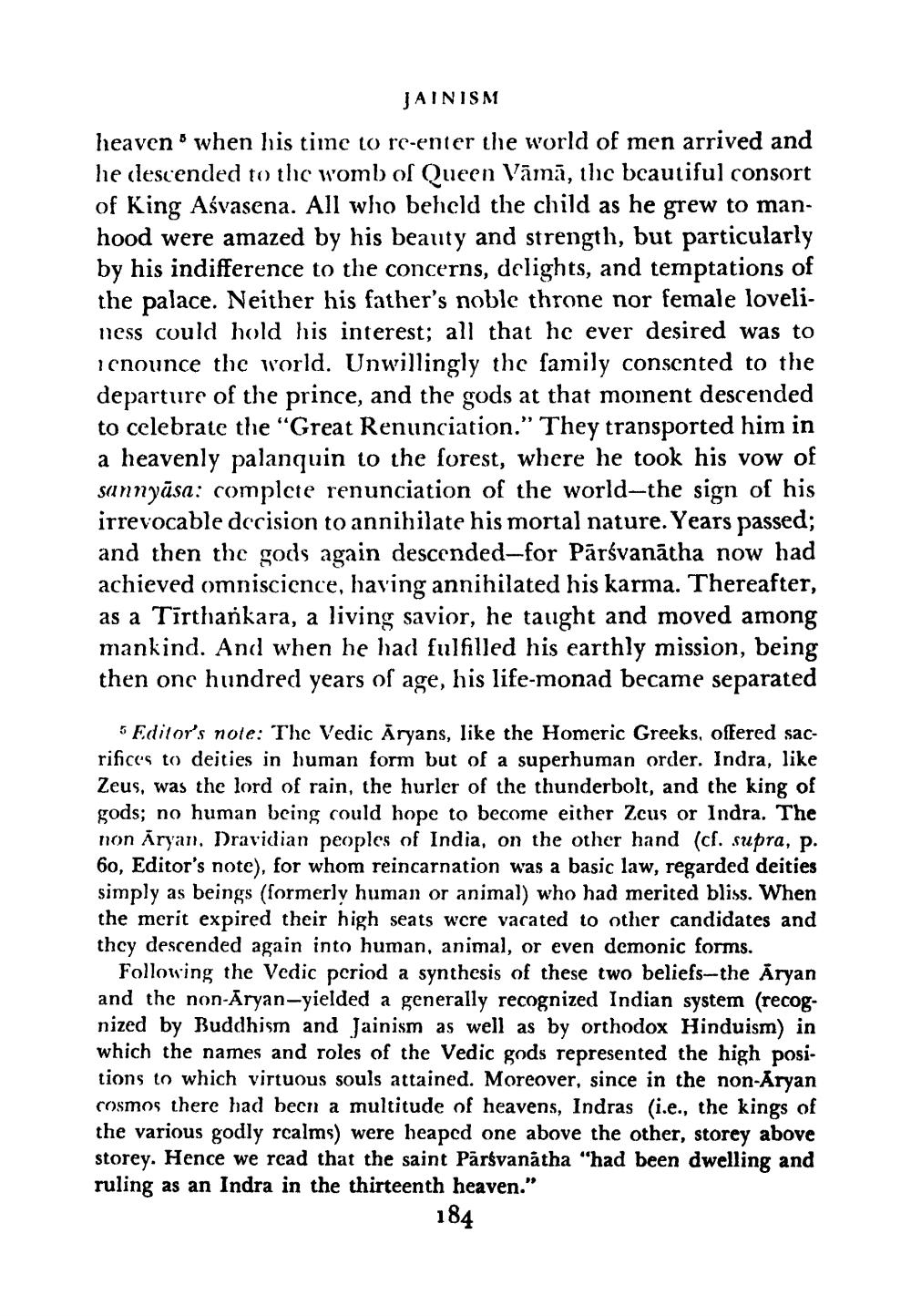________________
JAINISM
heaven when his time to re-enter the world of men arrived and he descended to the womb of Queen Vāmā, the beautiful consort of King Aśvasena. All who beheld the child as he grew to manhood were amazed by his beauty and strength, but particularly by his indifference to the concerns, delights, and temptations of the palace. Neither his father's noble throne nor female loveliness could hold his interest; all that he ever desired was to icnounce the world. Unwillingly the family consented to the departure of the prince, and the gods at that moment descended to celebrate the "Great Renunciation." They transported him in a heavenly palanquin to the forest, where he took his vow of sannyāsa: complete renunciation of the world-the sign of his irrevocable decision to annihilate his mortal nature. Years passed; and then the gods again descended-for Pārśvanātha now had achieved omniscience, having annihilated his karma. Thereafter, as a Tīrthankara, a living savior, he taught and moved among mankind. And when he had fulfilled his earthly mission, being then one hundred years of age, his life-monad became separated
Editor's note: The Vedic Aryans, like the Homeric Greeks, offered sacrifices to deities in human form but of a superhuman order. Indra, like Zeus, was the lord of rain, the hurler of the thunderbolt, and the king of gods; no human being could hope to become either Zeus or Indra. The non Aryan, Dravidian peoples of India, on the other hand (cf. supra, p. 60, Editor's note), for whom reincarnation was a basic law, regarded deities simply as beings (formerly human or animal) who had merited bliss. When the merit expired their high seats were vacated to other candidates and they descended again into human, animal, or even demonic forms.
Following the Vedic period a synthesis of these two beliefs-the Aryan and the non-Aryan-yielded a generally recognized Indian system (recognized by Buddhism and Jainism as well as by orthodox Hinduism) in which the names and roles of the Vedic gods represented the high positions to which virtuous souls attained. Moreover, since in the non-Aryan cosmos there had been a multitude of heavens, Indras (i.e., the kings of the various godly realms) were heaped one above the other, storey above storey. Hence we read that the saint Pārsvanatha "had been dwelling and ruling as an Indra in the thirteenth heaven."
184




